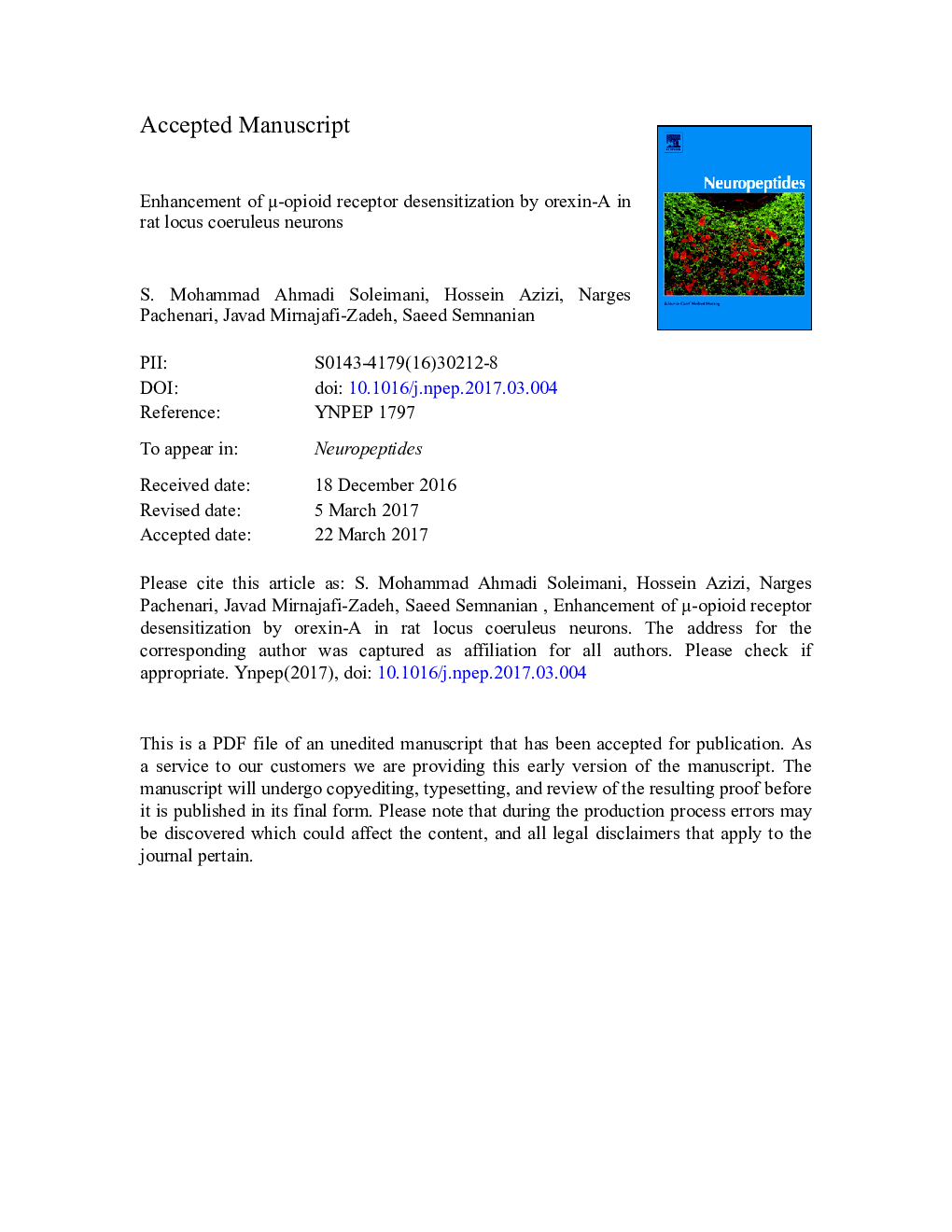| Article ID | Journal | Published Year | Pages | File Type |
|---|---|---|---|---|
| 8633622 | Neuropeptides | 2017 | 34 Pages |
Abstract
Opioids have always been used in clinical practice for pain management. However, development of tolerance to their effects following long term administration, seriously restricts further clinical use of these drugs. In this regard, μ-opioid receptor (MOR) desensitization, as an initial step in development of opioid tolerance, is of particular significance. Previous studies support the involvement of orexinergic system in development of opioid tolerance. Locus coeruleus (LC) nucleus has been shown to modulate pain and development of tolerance. Opioid receptors (particularly μ) are densely expressed within the LC. Moreover, it receives widespread orexinergic inputs and orexin type 1 receptors (OX1Rs) are also highly expressed in this brain region. In the present study, the effect of orexin-A (OXA) on met-enkephalin (ME)-induced MOR desensitization was investigated in locus coeruleus neurons of male Wistar rats (2-3 weeks of age). ME (30 μM), as a potent MOR agonist, was applied for 10 min and the outward K+ current was recorded using whole cell patch clamp recording. The percentage of decrease in ME-induced K+ current was considered as the degree of MOR desensitization. Results indicated that OXA (100 nM) enhances ME-induced MOR desensitization via affecting OX1Rs in rat locus coeruleus neurons and this effect is mediated by a protein kinase C dependent mechanism within the LC. The activity of orexinergic system might potentiate the signaling pathways underlying opioid-induced receptor desensitization.
Related Topics
Life Sciences
Biochemistry, Genetics and Molecular Biology
Endocrinology
Authors
S. Mohammad Ahmadi Soleimani, Hossein Azizi, Narges Pachenari, Javad Mirnajafi-Zadeh, Saeed Semnanian,
